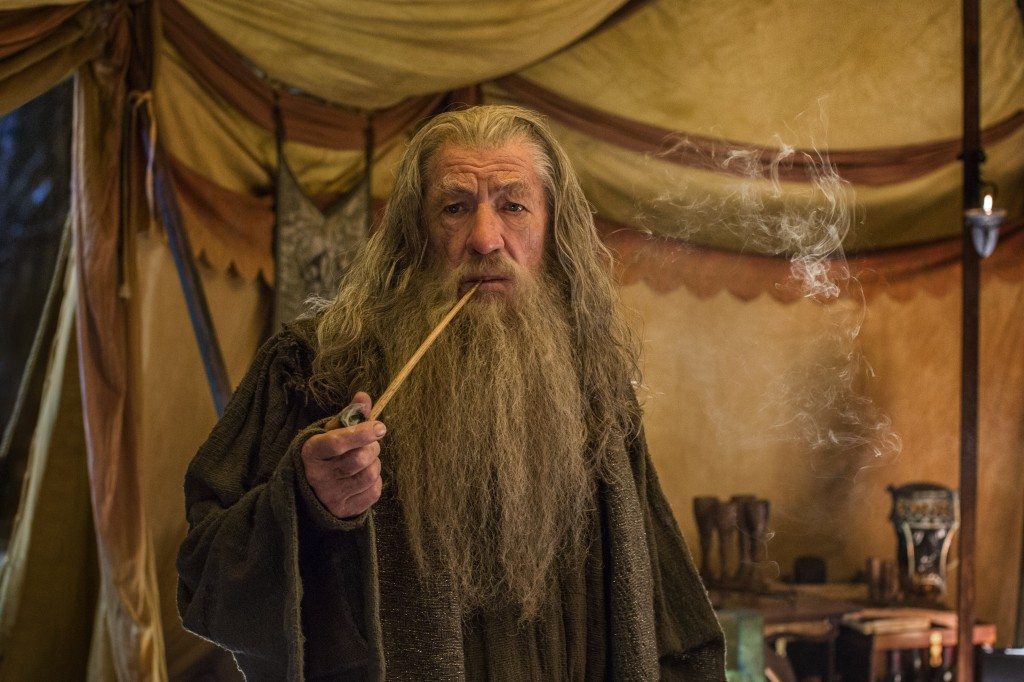The Hobbit: The Battle of the Five Armies
Director: Peter Jackson
Cast: Ian McKellen, Martin Freeman, Richard Armitage
Length: 144 minutes
Country: US, New Zealand
Peter Jackson’s revisit to Middle-Earth in the form of this audacious, somewhat overestimated retelling of J.R.R. Tolkien’s original text The Hobbit has followed a very jagged path. Originally a two-part prequel adaptation now extended to three, the series has been pumped up from its humble origins in order to stand in contrast to the epic grandeur of The Lord of the Rings trilogy. An Unexpected Journey was a steady if uneventful introduction, while The Desolation of Smaug reached for a more cohesive structure that benefited the story greatly, hitting many action beats with a pace that knew when to run and when to walk. Finally, over a decade later and shy of a billion dollars in the making, the Middle-Earth saga that Jackson & Co. set out to create is at an end with The Battle of the Five Armies.
The entire trilogy has been an exercise in excess
Following immediately from the climactic moments of its predecessor, Smaug the terrible, unleashed from the Lonely Mountain, sets out to wreak havoc upon Lake Town in a dramatic and thrillingly satisfying opening sequence of rubble and hellfire. Meanwhile, Bilbo and the Dwarves must now defend the mountain and its treasure trove from a quintet of armies, who are descending in droves to claim their stake of the riches of Erebor. All of which leads to a climactic battle that consumes the best part of the film – and this is where the film falters in typically dramatic fashion.
The entire trilogy has been an exercise in excess; bloating the original text up to immense size through addition and elaboration, adding pre-existing elements from outside of the material and entirely new dramatic conflicts. The scale has been expanded to encompass many different elements of Tolkien lore, as well as drawn-out action sequences and epic, sweeping shots to fully exploit their conceived universe. Unlike the first instalment’s humble roots, this is the only film in which you’d expect the scale to come into its own with the titular battle being the core plot point. Unfortunately, what the film ends up feeling like is an over-long third act to the second film with no centrepiece. It struggles to wrap-up many of the series loose narrative ends over the course of its surprisingly short runtime. Characters built up and inducted over the previous two are squandered in mere cameo roles as the delirium of one of the most cluttered, clinical looking battles of the entire series unfolds over 60+ minutes. It feels like the inevitable Extended Edition release next year will fill in many of the films narrative shortcomings, but it doesn’t help that plenty of the film feels like that of a rushed production.

The story itself, while muddled and unfocused, lies mainly on the shoulders of Thorin Oakenshield, who is suffering his own inner crisis as the film hammers in the theme of greed and corruption being the burden of the soul. Richard Armitage pitched the performance greatly, balancing plain pantomime theatrics with genuine emotional turmoil on cue. While many of the other Dwarves fall into the backdrop of events, their presence is still felt as the final moments approach. Everyone performs adequately and many are given enough to do both on and off screen – with the exception of Bilbo. While he is certainly never forgotten and an integral part of the plot, his role throughout is distilled to that of an onlooker of events, and it can’t help but be felt that this terrific, defining performance by Freeman is taken advantage of.
Nothing is ever unengaging; you are with the characters at every swing and beat. But after a while your detachment from the image becomes apparent. In many ways, this is Peter Jackson’s equivalent to the Star Wars prequel trilogy; a trilogy of inflated self-importance and technological prowess that focuses too much on the wrong elements. The explicit overuse of CGI in every crevice of the frame begins a disconnect that draws you right out of the picture, and you fear that Jackson may have gotten too lost in both his world and ego to notice that what he’s accomplishing just doesn’t hit the mark like it once did.
The Battle of the Five Armies is, nonetheless, an entertaining epic of sorts – a boisterous blockbuster if there ever was one. To balance out the more tired elements and characters, there are plenty of comical, tense and straight up ridiculous moments to keep everyone amused, while Howard Shore’s bombastic score once again steals every moment. It’s the ending of a journey that began where many would have never dared tread, and even though many may feel as though it has outstayed its welcome, we must never underestimate the sheer will and dedication that has been taken to bring these gargantuan monoliths to the screen in such a way. Although the ties to the original films run deep and sharp at times, this has still been an engrossing journey back to a familiar land, and it’s a good enough farewell to expect for Middle-Earth.
Images: Warner Bros.

Comments